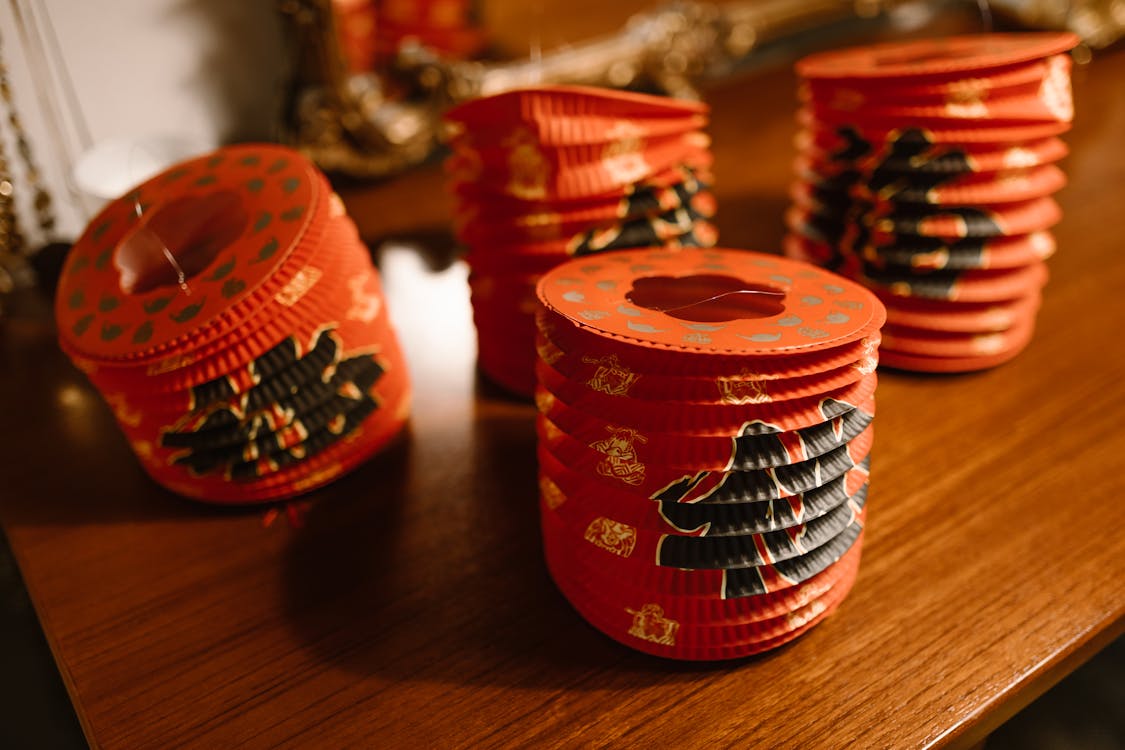What is the Traditional Food Gift for Chinese New Year?
Chinese New Year is a time of joy, celebration, and family gatherings, and one of the most cherished traditions during this spring festival is the exchange of food gifts.
In this article, we'll explore the significance of food gifts in Chinese culture and provide tips for choosing the perfect food gifts for this auspicious occasion.
Understanding the Importance of Food in Chinese Culture
In Chinese New Year traditions, the act of sharing food represents prosperity and abundance that strengthens familial ties.
During the Chinese New Year period, food plays a central role in celebration rituals and family reunion dinners, bringing a Chinese family and their communities together to share in the joy of the occasion.
Traditional Chinese New Year Foods
Lunar New Year is synonymous with an array of traditional foods that hold special significance and symbolism. From common Chinese foods like dumplings and fish to rice cakes and sweet treats, each food item carries auspicious meanings.
Dumplings, for example, is considered a lucky food as it symbolizes wealth due to their resemblance to ancient Chinese gold ingots.
13 Traditional Chinese Dishes for Chinese New Year in Singapore
These common Chinese dishes further enrich the Chinese New Year culinary experience in Singapore, as each carries its own unique symbolism in the Lunar New Year celebration.
1. Yu Sheng (鱼生)
Also known as "Prosperity Toss," this raw fish salad is a must-have for Chinese New Year in Singapore. It consists of raw fish slices, shredded vegetables, and various sauces and condiments. The ritual involves tossing the ingredients high in the air while saying auspicious phrases to invite prosperity and promote togetherness.
2. Pen Cai (盆菜)
A traditional dish, Pen Cai is a casserole filled with layers of ingredients such as abalone, sea cucumber, prawns, scallops, roast meat, and vegetables. It symbolizes abundance and shared prosperity.
3. Nian Gao (年糕)
This sweet glutinous rice cake is traditionally eaten to symbolize progress, growth, and a promise of a better year. These sweet rice balls can be eaten as is or fried with egg, according to your personal preference.
4. Bak Kwa (肉干)
A popular Chinese New Year snack, Bak Kwa is a sweet and savory dried meat, typically made from pork. Its smoky flavor and chewy texture make it a festive favorite, representing good luck and prosperity.
5. Pineapple Tarts
These buttery pastries filled with sweet pineapple jam are common during Chinese New Year in Singapore. The word "pineapple" sounds like "prosperity" in Hokkien, hence, it symbolizes wealth.
6. Eight Treasures Rice (八宝饭)
Traditional dessert made from glutinous rice, mixed with eight types of fruits and nuts, such as red dates, lotus seeds, and candied fruits. It represents unity, prosperity, and a sweet life for the upcoming year.
7. Braised Duck (卤鸭)
Braised duck is a common dish during Chinese New Year feasts. The duck is slow-cooked in a rich, savory sauce made from soy sauce, spices, and aromatics, symbolizing happiness, loyalty, and fidelity.
8. Longevity Noodles (长寿面)
"Changshou Mian" or "long life noodles" symbolizes long life and good health. They are usually served uncut to wish the recipient a long and prosperous life.
9. Chinese Dumplings (饺子)
Dumplings, or "jiaozi," symbolize wealth and prosperity because their shape resembles ancient Chinese silver ingots. Usually filled with a mixture of meat and vegetables, dumplings are commonly served at a Chinese New Year dinner.
10. Chicken Feet (凤爪)
Served braised or in a black bean sauce, chicken feet is a traditional Chinese New Year dish symbolizing good luck and the ability to grasp onto wealth.
11. Tang Yuan (汤圆)
Sweet glutinous rice balls filled with sesame paste, red bean paste, or peanut paste. Tang Yuan are traditionally eaten during the Lantern Festival and symbolizes family unity.

12. Egg Rolls
Symbolizing wealth and prosperity, egg rolls are typically filled with a mix of vegetables and meat, wrapped in a thin dough, and deep-fried until crispy.
13. Spring Rolls (春卷)
Similarly, spring rolls are deep-fried and enjoyed for their crispy texture. They represent wealth among Chinese people because the shape and color of spring rolls resemble gold bars.
Symbolism Behind Traditional Chinese New Year Food
The symbolism behind each traditional Chinese New Year food like spring rolls, is deeply rooted in cultural beliefs and superstitions.
What are the 7 lucky new year's food traditions?
-
Fish (鱼): Symbolizes surplus and prosperity.
-
Dumplings (饺子): Represent wealth due to their ingot-like shape.
-
Nian Gao (年糕): Sweet rice cake signifying progress and higher income.
-
Mandarin Oranges: Symbolize wealth and good fortune.
-
Longevity Noodles (长寿面): Represent long life and health.
-
Tang Yuan (汤圆): Glutinous rice balls symbolizing family unity.
-
Spring Rolls (春卷): Resemble gold bars and symbolize wealth.
These foods are traditionally consumed during Chinese New Year to attract good luck, prosperity, and happiness for the coming year.
Popular Chinese New Year Foods to Share
When it comes to giving Chinese New Year food gifts, there is a wide variety to choose from. Traditional gifts include tangerines, oranges, dried fruits, nuts, and candies, all of which symbolize good luck and prosperity.
Modern Chinese New Year food gifts include gourmet food baskets consisting red wine, luxury chocolates, and premium tea leaves, offering a blend of tradition and innovation to the Chinese New Year celebration.
12 Popular Food for Chinese New Year Gift Ideas
Chinese New Year food gifts not only carry rich cultural significance but also conveys good wishes for prosperity, health, and happiness of the year ahead.

-
Nian Gao (年糕)
-
Sweet sticky rice cakes, gifted to bring luck and well wishes for the recipients.
-
-
Mandarin Oranges
-
Representing wealth and good fortune, mandarin oranges are traditionally given in pairs and are a popular, auspicious gift during the New Year.
-
-
Chinese Tea
-
High-quality Chinese tea, such as green tea, oolong, or pu-erh, is a sophisticated gift symbolizing respect, health, and good fortune.
-
-
Eight Treasures Rice (八宝饭)
-
A traditional dessert made from glutinous rice, nuts, seeds, and dried fruits, symbolizing prosperity and unity.
-
-
Sweet Rice Balls (汤圆)
-
Often filled with sweet fillings like sesame or red bean paste, these symbolize family unity and togetherness.
-
-
Chinese Sausages (腊肠)
-
Preserved and flavorful, Chinese sausages are a popular gift symbolizing prosperity and a good harvest.
-
-
Assorted Nuts and Seeds
-
These are often presented in decorative boxes, symbolizing fertility, abundance, and the promise of new beginnings.
-
-
Jujube (Red Chinese Dates)
-
Dried jujubes are a common gift symbolizing prosperity, fertility, and longevity.
-
-
Fortune Cookies
-
Although more popular in Western cultures, fortune cookies containing positive messages are sometimes gifted for fun and good wishes.
-
-
Dried Fruits
-
Dried fruits such as apricots, figs, and persimmons are considered healthy and auspicious, symbolizing good fortune and a sweet life.
-
-
Seafood Delicacies
-
Items like dried scallops and abalone are luxurious Chinese New Year gifts symbolizing wealth and abundance.
-
-
Honey
-
Often given to symbolize sweetness and smoothness in the coming year, honey is a versatile and meaningful gift.
-
Choosing Chinese New Year Food Gifts
When selecting food for Chinese New Year gifts, it's important to consider the recipient's cultural background, dietary preferences, and any dietary restrictions they may have. Opt for gifts that are thoughtfully curated and reflect the spirit of the Lunar New Year festival.
Pay attention to packaging and presentation, as the visual appeal of the gift is just as important as its contents.
Preparing Homemade Lunar New Year Gifts
To add a personal touch, homemade food gifts are a heartfelt way to convey good wishes for the new year. Homemade food gift ideas include cookies, preserves, pickles, and baked goods like a custom Lunar New Year cake.
Chinese New Year Gift Giving Etiquette
When giving food gifts for Lunar New Year, it's important to observe proper gift-giving etiquette. Present gifts with both hands as a sign of respect, and avoid giving gifts in sets of four, as the number four is considered unlucky.
Similarly, refrain from giving gifts with negative connotations or sharp edges, as they may be interpreted as signs of bad luck.
Personalizing Your Gifts
Consider including handwritten notes or personalized labels to add a special touch to your gifts, even to your red envelopes!
Conclusion
In conclusion, food gifts play a central role in Lunar New Year celebrations, symbolizing good luck, prosperity, and familial ties. Whether you choose something traditional or modern, the act of exchanging food gifts is will surely bring joy and happiness to the celebration.
By selecting thoughtful and meaningful gifts, you can spread goodwill and blessings to your loved ones as they usher in the new year.
Frequently Asked Questions (FAQs)
What food to gift for Chinese New Year?
For Chinese New Year, gifting food that symbolizes prosperity and good fortune is a thoughtful gesture. Popular choices include Nian Gao (sweet sticky rice cake), which represents progress and growth, and Mandarin Oranges, symbolizing wealth and good luck. High-quality tea, like oolong or pu-erh, is appreciated for its cultural significance and health benefits. Assorted Chinese New Year sweets and snacks, such as pineapple tarts and Bak Kwa (sweet dried meat), are also well-received. These gifts not only delight the palate but also convey heartfelt wishes for a prosperous and auspicious new year.
What food is good luck for Chinese New Year?
Certain foods are considered lucky for Chinese New Year due to their symbolism. Fish, especially whole fish, represents abundance and surplus. Dumplings symbolize wealth because they resemble ancient Chinese money. Nian Gao (sweet rice cake) signifies progress and a higher income. Mandarin oranges are believed to bring prosperity and good fortune. Longevity Noodles, left uncut, symbolize long life. Tang Yuan (glutinous rice balls) represent family unity and togetherness. Consuming these foods during the celebrations is thought to bring good luck, prosperity, and happiness in the coming year.
What is the traditional gift for Chinese New Year?
The traditional gift for Chinese New Year is the red envelope (红包, hóngbāo), containing money. These envelopes are given to symbolize good luck, prosperity, and to ward off evil spirits. The red color of the envelope represents happiness and good fortune. The amount of money inside should avoid the number four, which is associated with death, and preferably include the number eight, which symbolizes wealth and prosperity. Giving red envelopes is a way to extend heartfelt wishes for a prosperous and auspicious new year to family members, friends, and even employees.

